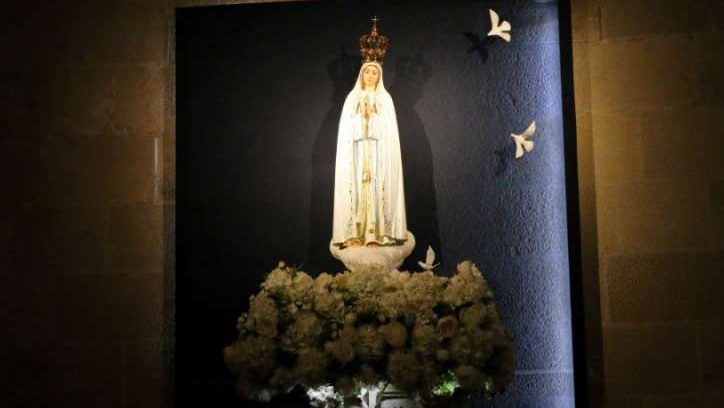While men in the trenches of World War I faced chemical gasses and industrialized weaponry that wrought unprecedented human carnage, an Angel of Peace appeared with a message.
“Do not be afraid. I am the Angel of Peace. Pray with me: My God I believe, I adore, I hope and I love You. I ask pardon for those who do not believe, do not adore, do not hope and do not love You,” the angel told three children in rural Portugal in that first of several supernatural encounters that would take place over the course of 1916 and 1917.
When the Virgin Mary appeared to Lucia, Jacinta, and Francisco on May 13, 1917, she requested, “Say the Rosary every day, to bring peace to the world and an end to the war.”
The Great War did come to an end in 1918, but the story and secrets of Fatima continued to unfold after the first world war until the fall of Communism in 1989. The Virgin Mary entered into the bloodiest century in human history with a message of peace and prayer.
In many ways the events at Fatima encapsulate the history of the 20th century, and in the long history of the Church, they will be remembered for their deep connections to the most important milestones of the last century.
Today a piece of the Berlin Wall stands in the Fatima square as a permanent monument to the apparition’s connection to 1989. The Bolsheviks’ October Revolution took place the same year as Fatima’s “Miracle of the Sun,” and the Virgin Mary specifically requested that the pope consecrate Russia to Mary, in union with the bishops of the world.
In Fatima’s museum, there is a rosary made from pieces of the Berlin Wall, a gift made by a Portuguese emigrant on May 13, 1991. There is also the ring that Pope John Paul II donated to Our Lady of Fatima in gratitude for her protection during the attempt on his life on May 13, 1981, a date that coincided with the anniversary of the Fatima apparitions. The ring had a special meaning to the pope; Cardinal Stephen Wszynski had given it to him at the beginning of his papacy in 1978. The pope also offered the bullet from the assassination attempt, which fit perfectly into Our Lady of Fatima’s crown.
World War II was also predicted by Our Lady of Fatima.
“God wishes to establish in the world devotion to my Immaculate Heart. If what I say to you is done, many souls will be saved and there will be peace. The war is going to end: but if people do not cease offending God, a worse one will break out during the Pontificate of Pius XI,” recorded Lucia in her third memoir.
“Fatima is undoubtedly the most prophetic of modern apparitions. The first and second parts of the ‘secret’ . . . refer especially to the frightening vision of hell, devotion to the Immaculate Heart of Mary, the Second World War, and finally the prediction of the immense damage that Russia would do to humanity by abandoning the Christian faith and embracing Communist totalitarianism,” wrote the former Secretary of the Congregation of the Doctrine of Faith Tarcisio Bertone.
Lucia dos Santos, the principal Fatima visionary died in 2005. Her niece, Maria dos Anjos, is still living across the street from Lucia’s little house in Fatima. Now 102 years old, Anjos’ life has spanned all but three years of Fatima’s modern history.
“When she visited us Lucia always said ‘Pray the rosary every day. That is what Our Lady asked,” Anjos told CNA.
Anjos also told CNA how much the city of Fatima has changed in her lifetime. Life across Europe has changed completely since 1917, she said. For one thing, children no longer work as shepherds.
Saints Jacinta and Francisco Marto did not travel far within their short lifetimes. They lived simple, austere, and faithful lives. Both died of the Spanish flu pandemic that killed between 50 and 100 million people in the early 20th century.
In perhaps the most poignant symbol of a changing world, what was once the pasture of poor shepherds is now an international pilgrimage destination where people from South Korea, India, Australia, and all over the world come together seeking the sacred.

